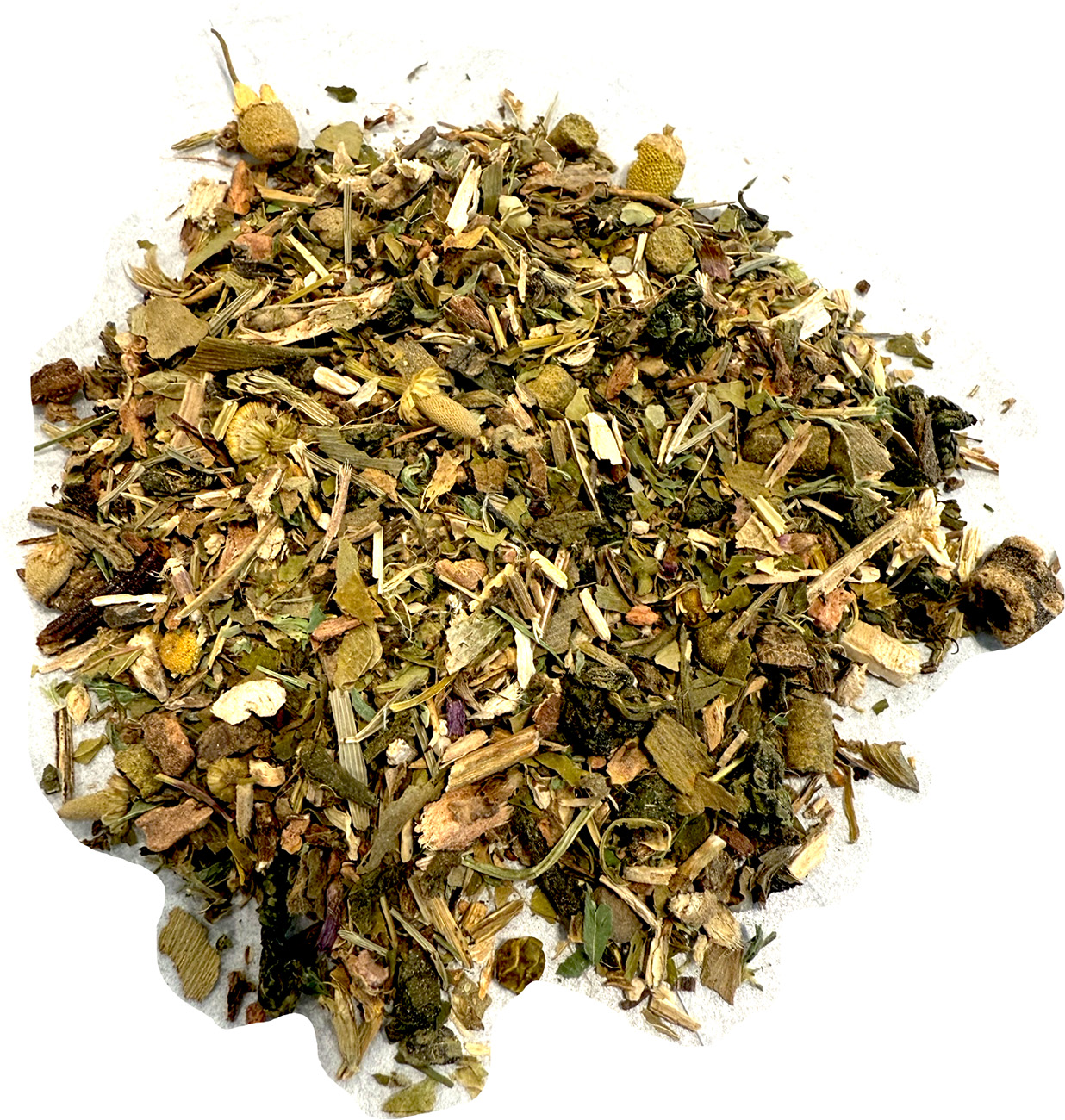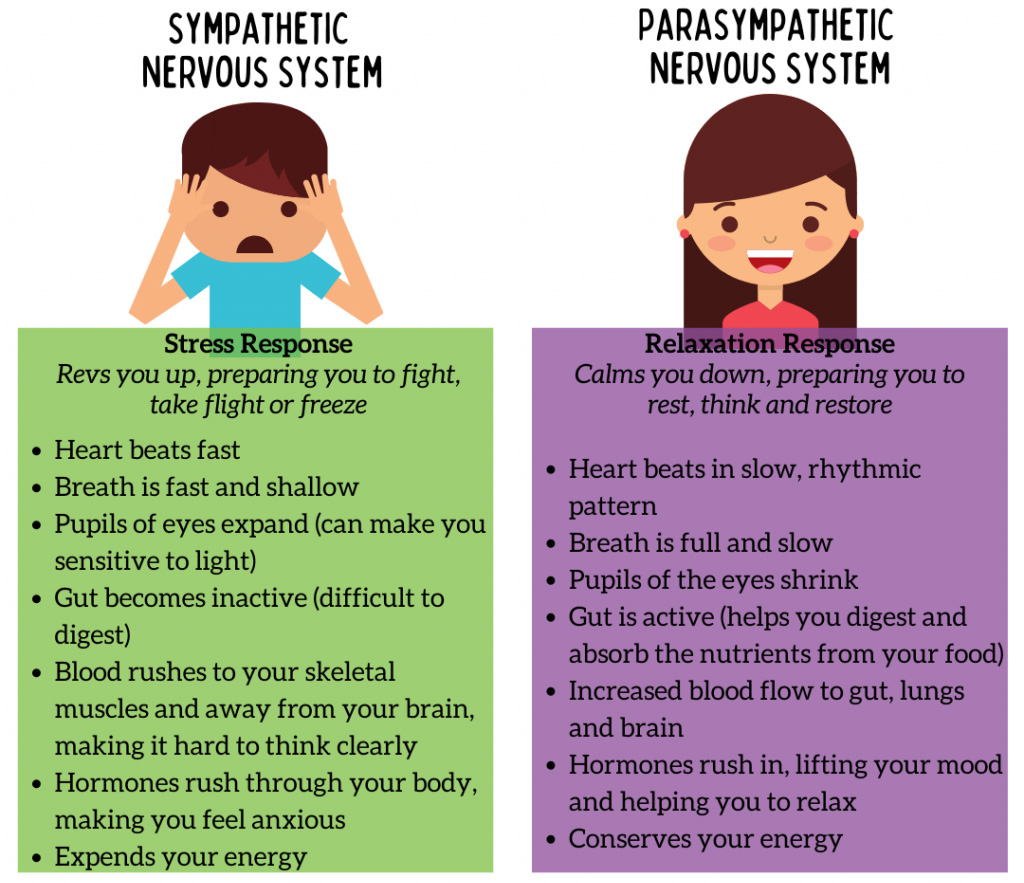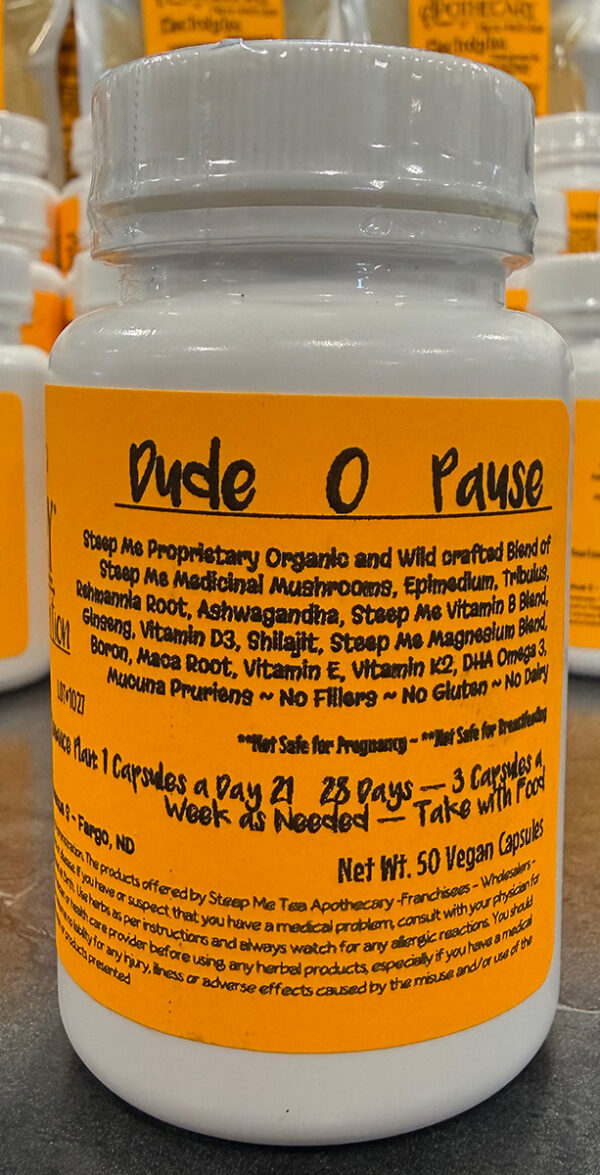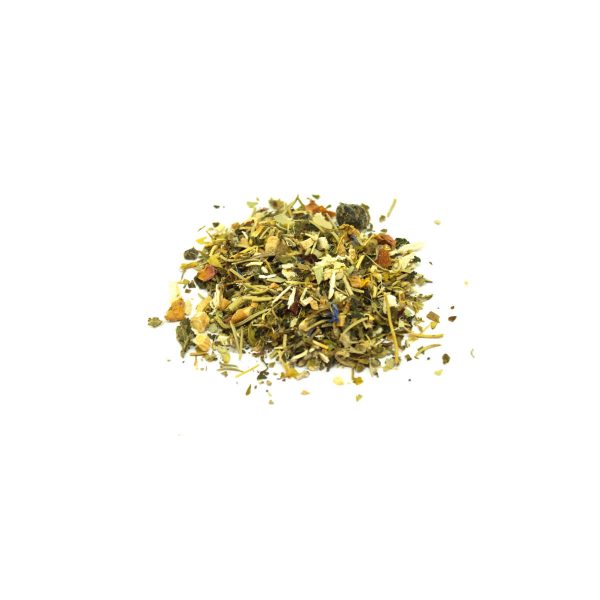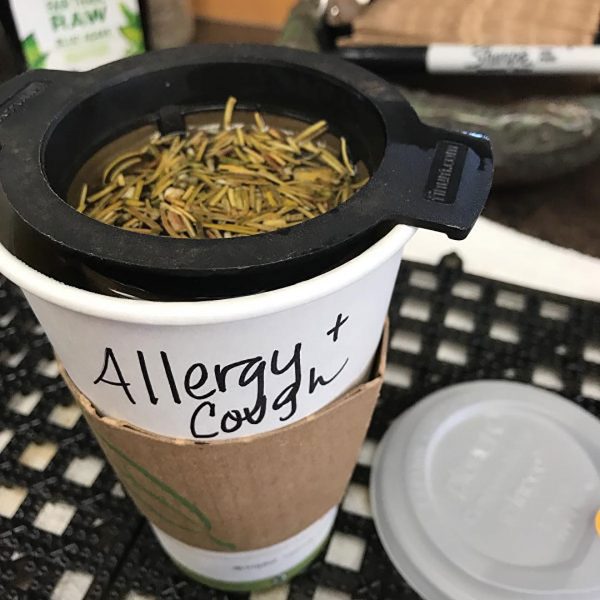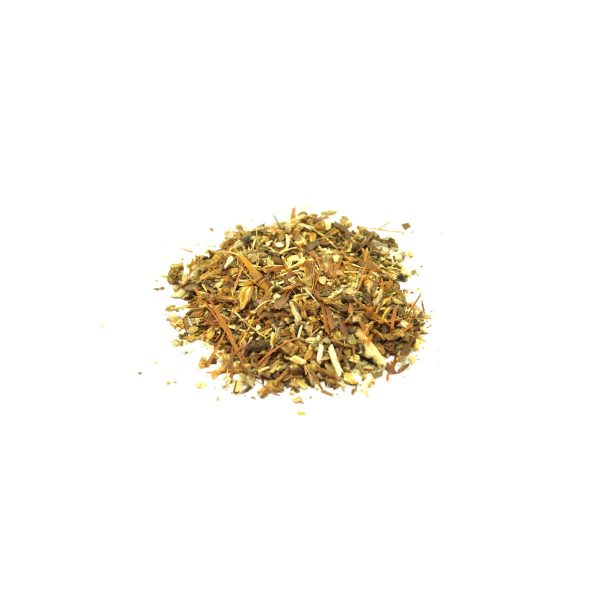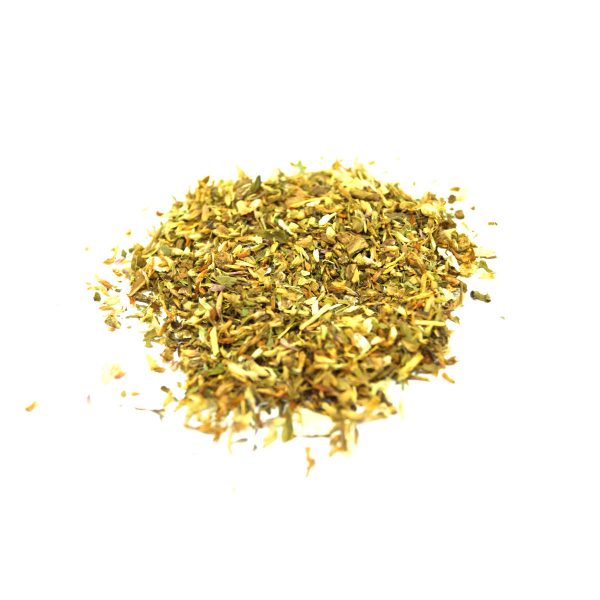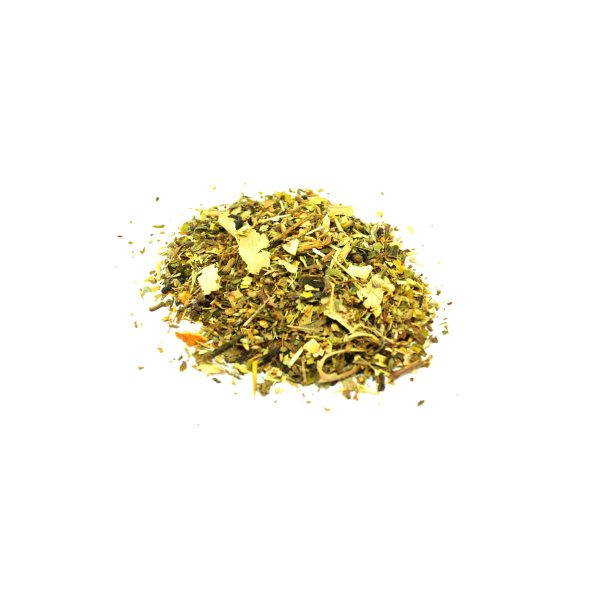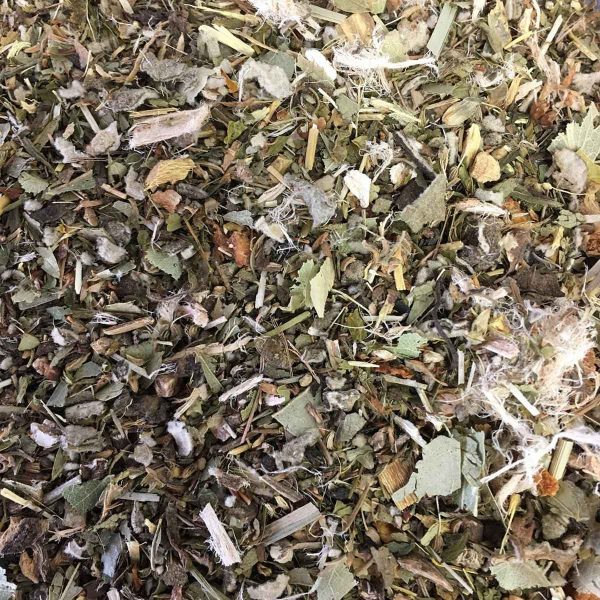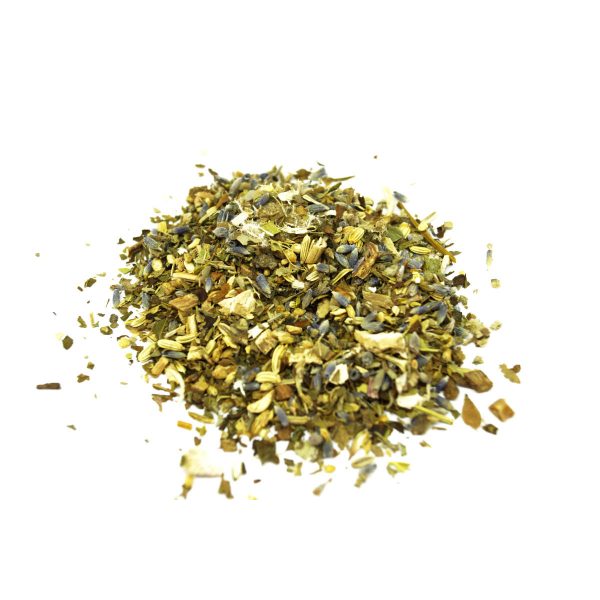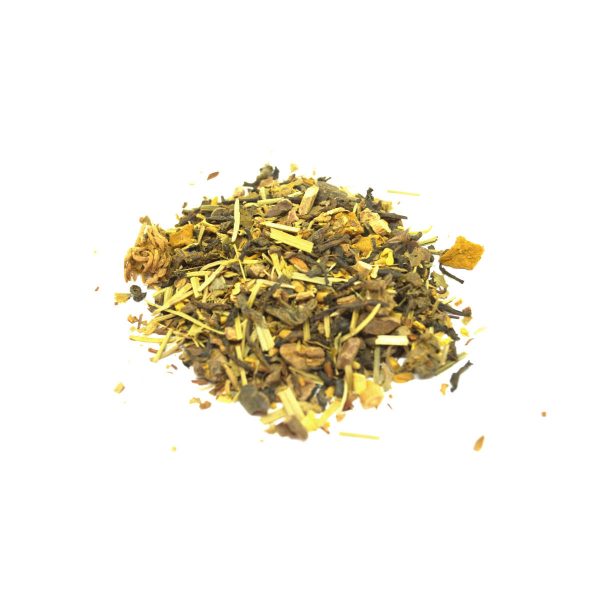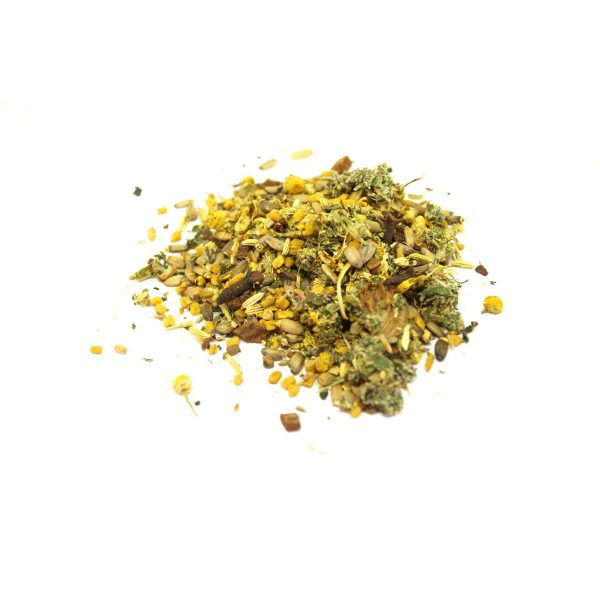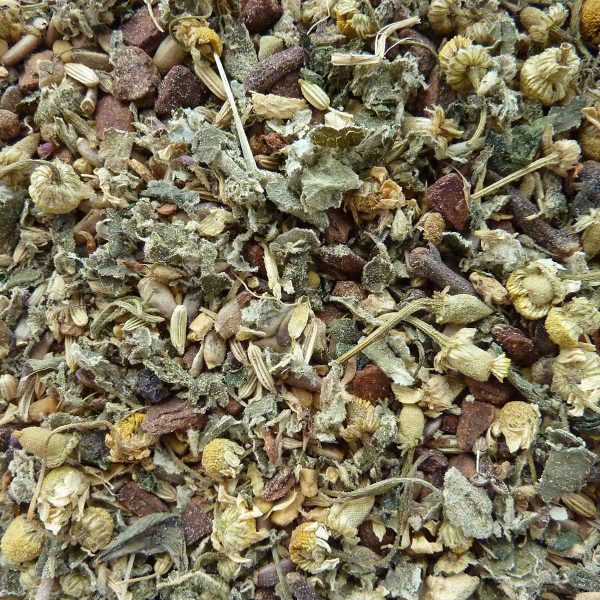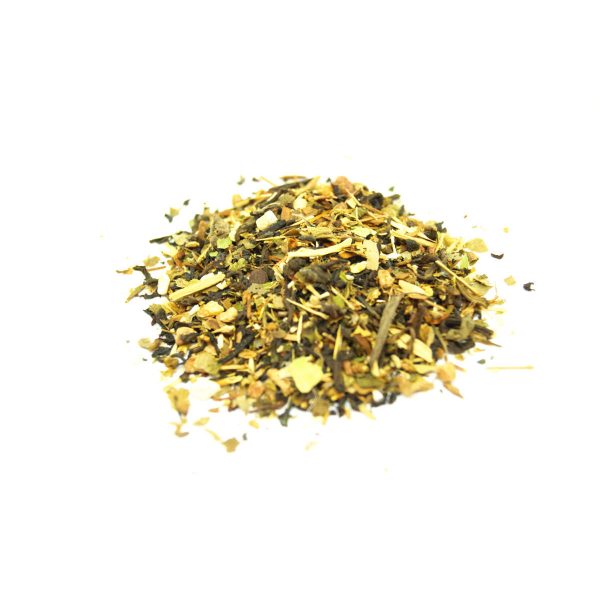With over 400 different kinds of loose tea that will exceed all tea lover’s expectations. You’re sure to find something you will love! All handcrafted by us in North Dakota.
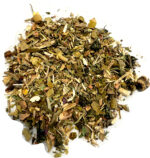
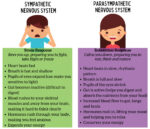
Autonomic Nervous System ~ POTS
From: $19.00
This blend is meant to help with the healing of the Autonomic Nervous System (NAS). The autonomic nervous system is a complex network of cells that controls the body’s internal state. It regulates and supports many different processes, often outside of a person’s conscious awareness. The nervous system is a collection of cells that send and receive electrical and chemical signals throughout the body.
SKU:
Autonomic Nervous System ~ POTS
Categories: Mushroom Tea, New Teas, Teas
Tags: All natural, Handcrafted
Description
Blender’s Notes Autonomic Nervous System ~ POTS:
Steep Me Self-Help combinations are a fantastic way to get health benefits outside of the standard tea leaf. This blend is meant to help with the healing of the Autonomic Nervous System (NAS). The autonomic nervous system is a complex network of cells that controls the body’s internal state. It regulates and supports many different processes, often outside of a person’s conscious awareness. The nervous system is a collection of cells that send and receive electrical and chemical signals throughout the body. The nervous system consists of two main parts: The central nervous system: This consists of the brain and spinal cord. The peripheral nervous system: This contains all the neurons outside of the central nervous system. The ANS is part of the peripheral nervous system. It is a collection of neurons that influence the activity of many different organs, including the stomach, heart, and lungs. Within the ANS, there are two subsystems that have mostly opposing effects: The sympathetic nervous system (SNS): Neurons within the SNS prepare the body to react to something in its environment. For example, SNS may increase heart rate to prepare a person to escape from danger. The parasympathetic nervous system (PNS): Parasympathetic neurons mostly regulate bodily functions when a person is at rest. The nervous system regulates the internal environment of the body. It is essential for maintaining homeostasis. Homeostasis refers to the stable and balanced conditions inside the body that are necessary to support life. The fight or flight response of the ANS evolved to protect the body from dangers around it. However, many stressful aspects of daily life can also trigger this response. Examples include work-related stress, financial concerns, relationship problems. Chronic stress can cause the ANS to trigger fights or flight responses over prolonged periods. This continuation will eventually harm the body. Autonomic disorders affect the functioning of the ANS. They can sometimes occur because of the following: aging, damage to neurons within the ANS, damage to specific parts of the brain. Certain medical conditions can also affect the ANS. Some common causes of autonomic disorders include: diabetes, peripheral nerve disorder, Parkinson’s disease – Less common causes of autonomic disorders include: multiple system atrophy (MSA), spinal cord disorders, Lambert-Eaton syndrome, botulism, viral infections, damage to nerves in the neck Autonomic disorders can cause a wide range of symptoms including: dizziness and lightheadedness due to orthostatic hypotension (OH), which is a significant drop in blood pressure when standing up after sitting, reduced or absent sweating, leading to intolerance of heat, dry eyes and mouth, digestive issues, nausea, vomiting, constipation, difficulty urinating, erectile dysfunction, pupils being less reactive to light. Autonomic nervous system: What it is and how it works (medicalnewstoday.com)
From tight deadlines at work to personal challenges at home, stress can come from anywhere. But what happens inside our bodies when we feel stressed? When you are feeling stressed, your body has a natural response to prepare you to manage the situation and feeling, which is why you might notice your heart rate increasing, your palms getting sweaty, or your muscles tense. These are all signs that the sympathetic system is getting ready to either face the challenge or escape from it, hence “fight or flight.” However, if our bodies are always in a state of high alert, problems can arise. Our bodies are not designed to be constantly under stress. When the sympathetic system is working overtime and our bodies are continually flooded with cortisol and adrenaline, we can end up facing health issues. In the short term, we might feel tired, irritable, or have trouble sleeping. Over time, the continuous activation of the sympathetic nervous system can lead to us having more serious problems like high blood pressure, weakened immune function, and even heart issues. Sometimes, your body’s way of responding to certain situations can fall uncoordinated. This off-balance state in your nervous system is called a dysregulated nervous system. There are many common signs that show your nervous system might be off track. Recognizing these signs and understanding the causes is the first step in taking charge of your nervous system’s health and restoring the balance, inviting your parasympathetic nervous system to activate and promote relaxation, lower blood pressure, steady breathing, and digestion. Here are some of the signs you may be experiencing a dysregulated nervous system. Anxiety ~ Panic attacks ~ Digestive issues ~ Trouble sleeping ~ Constant fatigue ~ Persistent muscle pain. There are also many stressors that can disrupt nervous system balance, including: Chronic stress ~ Burnout ~ Traumatic events ~ Poor sleep habits ~ Unhealthy diet ~ Not taking time to relax. How to regulate your nervous system? Try these 13 techniques — Calm Blog
Postural orthostatic tachycardia syndrome (POTS) is a condition that causes your heart to beat faster than normal when you transition from sitting or lying down to standing up. It is a type of orthostatic intolerance. Each word of “postural orthostatic tachycardia syndrome” has a meaning: Postural: Related to the position of your body. Orthostatic: Related to standing upright. Tachycardia: A heart rate over 100 beats per minute. Syndrome: A group of symptoms that happen together. Normally, your body’s autonomic nervous system balances your heart rate and blood pressure to keep your blood flowing at a healthy pace, no matter what position your body is in. If you have POTS, your body cannot coordinate the balancing act of blood vessel constriction (squeezing) and heart rate response. This means that your body cannot keep your blood pressure steady and stable. This causes a variety of symptoms. Each case of POTS is different. People with POTS may see symptoms come and go over a period of years. In most cases, with adjustments in diet, medications and physical activity, a person with POTS will experience an improvement in their quality of life. Normally, when you stand up, gravity causes about 10% to 15% of your blood to settle in your abdomen, legs, and arms. This means that less blood reaches your brain, which can cause brief lightheadedness. If you do not have POTS, this lightheaded feeling does not happen often because your leg muscles help pump blood back up to your heart. In addition, your autonomic nervous system turns on a series of rapid responses. To compensate for the lower amount of blood returning to your heart after standing up, your body releases the hormones epinephrine (adrenaline) and norepinephrine. These hormones typically cause your heart to beat a little faster and with more force. Norepinephrine also causes your blood vessels to tighten or constrict. This all results in more blood returning to your heart and brain. People with POTS tend to pool a larger amount of blood in vessels below their heart when they stand. Their body responds by releasing more norepinephrine or epinephrine to try to cause more squeezing of their blood vessels. For several reasons, their blood vessels do not respond normally to these hormones. Because their heart remains able to respond to the norepinephrine and epinephrine, their heart rate often increases. This imbalance causes many symptoms, such as dizziness, fainting and exhaustion. POTS: Causes, Symptoms, Diagnosis & Treatment
In this blend we started out with a bit of Green Tea. Green Tea is extremely beneficial in boosting your cognition and improving brain health and was inversely linked to cognitive impairment, especially cognition in Alzheimer’s patients. The L‑Theanine contained in green tea promotes alpha brain wave activity, linked to relaxation without sedation, balances caffeine’s stimulatory effects, reducing jitteriness and supporting parasympathetic activity and L‑theanine reduced stress markers (salivary cortisol, chromogranin A) and improved heart rate variability (HRV), a key measure of autonomic balance. The Catechins in green tea may help improve endothelial function and circulation, which could support autonomic regulation. Next, we added Egyptian Chamomile. Egyptian Chamomile does a wonderful job of supporting the nervous system and it impacts on the nervous system in a way that helps support a healthy sleep cycle plus support the autonomic nervous system by calming sympathetic overdrive and promoting parasympathetic activity. Egyptian chamomile is caffeine-free and rich in sedative flavonoids, making it a classic sleep aid and better sleep quality supports autonomic repair and reduces next-day orthostatic intolerance. For people with POTS (Postural Orthostatic Tachycardia Syndrome), its gentle sedative, anti-inflammatory, and vascular-modulating effects could ease anxiety, improve sleep, and reduce stress-triggered symptom flares. Egyptian Chamomile has Apigenin (flavonoid) which Binds to GABA-A receptors, producing mild sedative and anxiolytic effects like benzodiazepines but gentler and Chamomile’s flavonoids can relax smooth muscle, potentially easing vascular constriction. It also contains Bisabolol & Chamazulene: which are anti-inflammatory compounds that reduce neuroinflammation and calm excitatory signaling. We added Hops because of its calming support of the nervous system as a sedative and relaxant, making it a choice remedy for use in sleep disturbances such as insomnia and over stimulated nervous system. Hops increase GABAergic signaling, helping with sleep onset and depth plus for POTS, it can instill better sleep which reduces next-day orthostatic intolerance and sympathetic surges. Hops are also used to moderate tension and anxiety symptoms and work well in combination with other anti-anxiety herbs such as passionflower or valerian. Hops contain bitter acids of humulone and lupulone which function as mild sedatives and anxiolytic effects via GABA-A receptor modulation, like valerian. Hops also contain a neuroprotective, antioxidant and anti-inflammatory called Xanthohumol, which reduces oxidative stress in neural tissue: Hops also contain a phytoestrogen . 8-prenylnaringenin which can help with mild hormonal activity, potentially influencing mood and vascular tone which allows them to reduce sympathetic overactivation, promote parasympathetic activity, and improve heart rate variability (HRV).
Next, we added Passionflower. Passionflower benefits the autonomic nervous system by calming sympathetic overdrive and enhancing parasympathetic tone. For POTS (Postural Orthostatic Tachycardia Syndrome), it may help indirectly by reducing anxiety, improving sleep because it calms the mind from mental worry, and exhaustion from cerebral fullness and from excitement, and stabilizing stress-triggered tachycardia, though it is not a direct treatment for orthostatic intolerance. Passionflower contains flavonoids of apigenin, vitexin and isovitexin that bind to GABA-A receptors, producing anxiolytic and sedative effects and this reduces sympathetic nervous system hyperactivity, promoting parasympathetic dominance. By enhancing GABAergic tone, passionflower can increase heart rate variability (HRV), a marker of autonomic balance. It also shows mild hypotensive effects, which may calm palpitations but could worsen dizziness in POTS patients prone to low blood pressure. Valerian Root promotes relaxation and restful sleep. Valerian root helps calm the nervous system when it is overactive. It can do this by affecting the levels of neurotransmitters involved in rest and sleep. It increases the amount of a certain neurotransmitter called GABA, which has calming properties which is likely why people find it helpful for battling anxiety and restless sleep. Deep, uninterrupted sleep is critical for overall health. Most people know that sleep is important, but they may not realize just how critical it is for overall health and well-being. Others suffer from bouts of insomnia and sleep anxiety. During sleep, the body has a chance to rest and repair itself. The brain also uses this time to cleanse itself of toxins that can build up during the day. If your nervous system is dysregulated, you might have sleep problems such as trouble falling asleep or waking up in the middle of the night. We also included Gingko Biloba. Gingko Biloba is a nervine stimulant by activating nerve endings by increasing circulation and increasing vitality and zest. It can be helpful in improving things like anxiety, memory, cognitive function, and more. Ginkgo works by altering levels of neurotransmitters like serotonin and GABA, and by lowering inflammation in the nervous system. This makes it helpful for boosting nervous system function and preventing deterioration and damage. We also add Lobelia because it has complex effects on the autonomic nervous system (ANS). Its alkaloid lobeline can function as both a stimulant and relaxant . Lobelia is a nerve sedative that directly relaxes the nervous system, helps reduce pain, ease tension, and aids going to sleep. Lobelia has gentle, yet powerful pharmacodynamic action of soothing and nourishing the peripheral nerves and muscle tissue. It may reduce cravings and modulate dopamine release, indirectly calming stress-driven sympathetic activation which can help brain fog, sympathetic surges, or poor oxygenation. Kava Kava because it primarily benefits the autonomic nervous system by calming sympathetic overdrive, enhancing GABAergic activity, and reducing anxiety. Kavalactones in Kava Kava enhance GABA-A receptor activity, producing anxiolytic and muscle-relaxing effects which reduces sympathetic nervous system hyperactivity, shifting balance toward parasympathetic dominance. Kava modulates the hypothalamic-pituitary-adrenal (HPA) axis, lowering cortisol output and some kavalactones inhibit dopamine and norepinephrine reuptake, mildly stabilizing mood and reducing hyperarousal. kava can improve sleep onset and depth, which supports autonomic repair by calming CNS excitability.
Next, we included Self-Heal. Self-Heal is a gentle nervine(calms without sedation) and vascular-supportive herb that may benefit the autonomic nervous system (ANS) by reducing inflammation, modulating vascular tone, and supporting parasympathetic balance. For POTS (Postural Orthostatic Tachycardia Syndrome), it could help with circulation, neuroinflammation, and stress-triggered autonomic imbalance. Self-Heal is rich in rosmarinic acid, ursolic acid, and flavonoids, which reduce oxidative stress and neuroinflammation. Neuroinflammation is increasingly linked to autonomic dysregulation in conditions like POTS and by calming inflammatory cascades, self-heal may help stabilize ANS signaling. Ashwagandha because it is a classic adaptogen herb, helping the body adapt to stress and reduce cortisol by ~20–30%, lowering sympathetic drive and helps buffer the hyperadrenergic subtype of POTS, where excess norepinephrine worsens tachycardia. This makes it extremely helpful for protecting the nervous system by enhancing parasympathetic tone and reducing sympathetic overactivation. It improves heart rate variability (HRV), a marker of autonomic balance and may normalize ANS function by modulating GABAergic and serotonergic pathways. Ashwagandha improves mental clarity, memory, and reduces brain fog, which are common in POTS. White Oak Bark is rich in ellagitannins and gallic acid, which tighten and tone tissues. While traditionally used for varicose veins, hemorrhoids, and diarrhea due to its ability to reduce excessive fluid leakage and improve vascular integrity it helps with venous pooling and vascular laxity, which contribute to orthostatic intolerance. By reducing vascular inflammation, tightening venous tone, and stabilizing GI irritation, white oak bark may indirectly support autonomic stability. Boswellia is best known as a potent anti-inflammatory and immunomodulatory herb. For POTS (Postural Orthostatic Tachycardia Syndrome), it may help by reducing systemic inflammation, calming neuroinflammation, and modulating immune activity which can influence autonomic nervous system (ANS) stability. Boswellic has an acid called AKBA which inhibit 5-lipoxygenase (5-LOX), reducing leukotriene synthesis then lowers vascular and neuroinflammation, which can worsen autonomic instability. It can also help in conditions where mast cell activation or autoimmune overlap contributes to POTS symptoms. Boswellia can reduce brain edema, oxidative stress, and neuroinflammation. It can calm central inflammation and may improve ANS signaling and heart rate variability (HRV), stress reduction and improved cognitive clarity, which could ease “brain fog” in POTS. We also added California Poppy. California poppy (Eschscholzia californica) is a gentle nervine, sedative, and anxiolytic herb. It contains alkaloids called eschscholtzine, californidine, protopine and allocryptopine which interact with GABA-A receptors producing sedative, anxiolytic, and antispasmodic effects, like passionflower or valerian. California Poppy helps reduce sympathetic hyperactivity and supports parasympathetic tone. California poppy can improve heart rate variability (HRV), a marker of autonomic balance and may reduce stress-triggered tachycardia and palpitations in POTS patients with hyperadrenergic features. California Poppy also a mild analgesic and antispasmodic effects; can ease headaches, muscle tension, or GI spasms and it reduces secondary sympathetic activation from pain or discomfort.
We also included Rhodiola. Rhodiola has anti-inflammatory and neuroprotective effects, it can stimulate the nervous system and may boost neurotransmitter levels. It can help improve cognitive function, enhance learning and memory, and support anxiety. It may also be useful for protecting against diseases like Alzheimer’s disease, because of its many beneficial properties. Alfalfa Leaf because it is so rich in so many minerals, vitamins, and proteins that it has multiple benefits on the human body including improved immunity, protection from anemia, better circulation of blood as well as protection against heart disease like atherosclerosis. Rich in vitamins A, C, E, K, and B-complex, plus calcium, magnesium, potassium, and iron. These nutrients are essential for nerve conduction, vascular tone, and mitochondrial energy metabolism—all relevant in POTS, where fatigue and poor perfusion are common. Saponins in alfalfa help lower cholesterol and improve vascular elasticity, provide better vascular tone, and may reduce venous pooling, a key contributor to orthostatic intolerance and contains coumarins which provide mild anticoagulant and anti-inflammatory effects, supporting microcirculation. Alfalfa contains phytoestrogens of isoflavones and coumestans that help regulate hormones and reduce menopausal/autonomic flares. Chlorophyll and antioxidants in Alfalfa provide detoxifying and anti-inflammatory effects, which may calm systemic triggers of autonomic instability. Next, we included Skullcap. Skullcap is a relaxing herb to calm your mind and used to support, restore, and tone the nervous system Skullcap is considered a neurotrophorestorative—it nourishes and rebuilds the nervous system over time. It contains flavones of scutellarin and baicalin that modulate GABA-A receptors, producing calming effects without heavy sedation. It helps buffer sympathetic surges and supports parasympathetic tone, improving autonomic balance. For POTS it may help indirectly by reducing anxiety, improving sleep, easing palpitations triggered by stress, and supporting autonomic balance. Skullcap promotes restful, clear-headed sleep without grogginess. It also improves sleep onset and depth, which is critical for ANS repair and resilience in POTS. Lemon Balm is classified as a nervine: nourishes and calms the nervous system. It contains Rosmarinic acid and flavonoids increase GABA activity, reducing excitability and promoting relaxation. Lemon Balm helps buffer sympathetic surges and supports parasympathetic tone, improving autonomic balance. Lemon Balm is traditionally used for insomnia and restlessness it also improves sleep onset, duration, and quality. With better sleep it supports ANS repair and resilience. Lemon Balm supports a calm mind and mild, occasional anxiety, modulates the levels of certain neurotransmitters in the body, such as GABA and it can positively impact factors related to mood and cognitive performance, helping conditions like anxiety. It also supports children who have restlessness and concentration problems. We also included Burdock Root. Burdock Root helps with the break-down of toxins and metabolic waste, making it easier for our bodies to eliminate that which we no longer need. Conditions ranging from cancers and hypertension to gout, digestive ulcers, and reproductive problems, burdock has offered support and help in recovery through the ages. Horsetail because it has antibacterial and antiseptic properties, meaning that the herb can protect against the invasion of foreign pathogens and substances that can compromise our immune system. The analgesic and anti-inflammatory compounds found in this herb can quickly alleviate inflammation.
Finally, we added Marshmallow. Marshmallows are soothing and healing to irritated and inflamed nerve endings. Demulcent herbs like marshmallows have a gel-like consistency that coats and protects nerve endings. Their actions are gentle on the nervous system and are great for soothing, healing, and high in nutritional value. For POTS (Postural Orthostatic Tachycardia Syndrome), its benefits are calming inflammation, protecting nerves, and supporting hydration and vascular tone, it may help reduce symptom flares and stabilize the autonomic nervous system (ANS).
NOTE: “This/these claim(s) has/have not been evaluated by the Food and Drug Administration. This product is not intended to diagnose, treat, cure or prevent any disease.”
Features Autonomic Nervous System ~ POTS:
- Leaves can be infused all day! (They will not get bitter)
- Lots of individual flavor based on the ingredients.
- All Wildcrafted Herbs
- All Organic where Wildcrafted is not available.
- Full of natural antioxidants and Very Hydrating
- Sample Size ~ 1 oz will make 8-10 ~ 16 oz teas.
- Sealed Bag ~ 4 oz will make 32-40 ~ 16oz teas
- Iced Tea ~ Always Double the amount of Tea for the same size cup!
- Per Serving ~ 1 tsp per 6 oz of H2O
- Recommend 3 tsp Per Day – resteep leaves 2-3 times.
- Caffeine: Low
Ingredients: Steep Me Proprietary Organic and Wildcrafted Blend of Chinese Sencha Green Tea, Egyptian Chamomile Flowers, Hops, Passionflower, Valerian Root, Gingko Biloba, Lobelia, Kava Kava, Self-Heal, Ashwagandha, White Oak Bark, Boswellia Resin, California Poppy, Rhodiola Root, Alfalfa Leaf, Skullcap, Lemon Balm, Burdock root, Horsetail and Marshmallow Root
Alternatively, try our Mood Balance Micro~Nutrition Capsules OR Anxious Brain Phyto~Nutrition Capsules OR Sleep2.0 Phyto~Nutrition Tea OR Sleep Micro~Nutrition Capsules OR Anxious Brain Phyto~Nutrition Tea OR Anxiety Phyto~Nutrition Capsules
Not Safe for Pregnancy
Not Safe for Breastfeeding
NOTE: This/these claim(s) has/have not been evaluated by the Food and Drug Administration. The products offered by Steep Me Tea Apothecary -Franchisees – Wholesalers – Influencers or SteepMe.com are not intended to treat, cure, or prevent any illness or disease. If you have or suspect that you have a medical problem, consult with your physician for diagnosis or treatment. All gender specific blends are based on Gender Assigned at Birth. Use herbs as per instructions and always watch for any allergic reactions. You should always carefully read all product packaging and labels. Always consult your physician or health care provider before using any herbal products, especially if you have a medical problem. Steep Me Tea Apothecary and SteepMe.com and/or its proprietors assume no liability for any injury, illness or adverse effects caused by the misuse and/or use of the information or products presented
NOTE: When using Teas, Capsules, Tinctures and Micro-Nutrition to help with your ailment ~ please remember this is a marathon ~ we recommend an investment of time of at least 6 months to see positive change. Any gender specific blends are based on gender assigned at birth.
Additional information
| Weight | 4 oz |
|---|---|
| Size | , , |
Benefits
When talking about the many types of tea, Tisane (Herbal Infusion) or Herbal Tea or Self-Help Tea is really not tea at all. It is made like a tea and all the same items are used to make it, but it does not contain the Camellia Sinensis Plant (unless stated), but is simply roots, flowers, leaves, and fruits put together is a combination that is made just like a tea. With that being said…the health benefits of a Tisane or Herbal teas are different. They can vary depending on the ingredients and combination of herbs so there are no blanket health benefits – just depends on the ingredients. For many, the best part of Tisane or Herbal Tea or Self-Help Tea is the fact that it is caffeine free naturally. Of course there are herbs that can be added to change that. The most popular Herbal teas include Chamomile, Peppermint, Spearmint, and any combination of fruit blends or infusions. Our Self-Help Teas are simply supplemental herbal combinations to aid with an occasional ailment specific to what may be happening in your life. The teas are built to work and are not build with any specific flavorings. The blends are tested to the minimum requirements laid out by Steep Me A Cup of Tea. The taste provided is natural to the herbs present in the blend. No flavorings added. This/these claim(s) has/have not been evaluated by the Food and Drug Administration. The products offered by Steep Me Tea Apothecary -Franchisees – Wholesalers – Influencers or SteepMe.com are not intended to treat, cure, or prevent any illness or disease. If you have or suspect that you have a medical problem, consult with your physician for diagnosis or treatment. Use herbs as per instructions and always watch for any allergic reactions. You should always carefully read all product packaging and labels. Always consult your physician or health care provider before using any herbal products, especially if you have a medical problem. Steep Me Tea Apothecary and SteepMe.com and/or its proprietors assume no liability for any injury, illness or adverse effects caused by the misuse and/or use of the information or products presented.
Tisane or Herbal Tea or Self-Help Tea
Related products
Allergy
From: $16.00
This allergy tea is great for seasonal allergies or for those who suffer long term. Really helps relieve the nasal drip in the back of the throat giving great relief. A great way to clear up your sinuses and help sooth your throat.
Select options
This product has multiple variants. The options may be chosen on the product page
Candida
From: $16.00
This combination has all the herbs proven to help get rid of the build-up of yeast in your digestive system. We recommend you add it to another tea of your choice to make is more palatable.
Select options
This product has multiple variants. The options may be chosen on the product page
Cleanse Detox ~ 7 Day
From: $13.00
What a great jump into a healthy detox with our Cleanse - great for a week of teas to make you feel so much better!
Select options
This product has multiple variants. The options may be chosen on the product page
Hangover
From: $15.00
This combo of our great health and wellness teas helps with all aspects of a hangover or hangover symptoms. Headache, Tummy Aches, Fatigue and Detox!
Select options
This product has multiple variants. The options may be chosen on the product page
Irritable Bowel Syndrome ~ IBS
From: $15.00
Looking for a great help to your Irritable Bowel Syndrome to slow down your going...this is a great blend that has been with us since 2008 to help with all your IBS concerns.
Select options
This product has multiple variants. The options may be chosen on the product page
Kidney ~ Bladder
From: $16.00
Select options
This product has multiple variants. The options may be chosen on the product page
Milk-In-It ~ Breastfeeding
From: $13.00
A fantastic herbal blend with chai spices and the addition of fennel and fenugreek to help enhance milk production. We have seen huge success rates with this blend.
Select options
This product has multiple variants. The options may be chosen on the product page
Swamp – Men’s Tea
From: $18.00
Select options
This product has multiple variants. The options may be chosen on the product page

